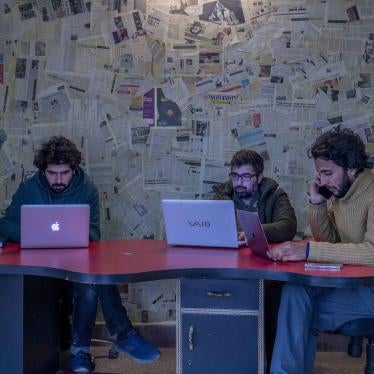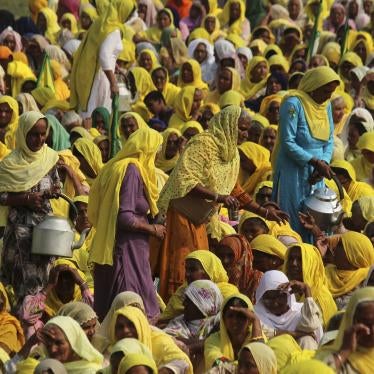Over the past month, several government-run educational institutions in India’s Karnataka state have banned Muslim female students from wearing the hijab, or headscarf. The state government, led by the Hindu nationalist Bharatiya Janata Party (BJP), has backed the discriminatory ban, passing a directive last week saying, “clothes which disturb equality, integrity, and public law and order should not be worn.”
Amid increasing tensions and protests between Hindu and Muslim students around the hijab in schools, Karnataka authorities have shut down schools and colleges for three days. On February 8, as the Karnataka High Court heard petitions by Muslim students supporting the right to wear the hijab, viral videos emerged of a mob of Hindu youth heckling a female Muslim student for wearing one. A day later, according to a news report, admission forms of six female Muslim students at the forefront of the protests, including their phone numbers and home addresses, were leaked online.
The hijab ban violates India’s obligations under international human rights law, which guarantees the rights to freely manifest one’s religious beliefs, to freedom of expression, and to education without discrimination. Likewise, forcing women and girls to wear religious garments also violates religious freedom and privacy rights under international law.
The hijab ban is the latest example of Indian authorities increasingly seeking to marginalize Muslims, exposing them to heightened violence. At the national and state levels, BJP governments have adopted a slew of laws and policies that systematically discriminate against religious minorities and vulnerable communities, especially Muslims.
In December 2021, Hindu ultra-nationalists, many with links to the BJP, held a three-day religious convention in Uttarakhand in which speakers openly called for the killing of Muslims. In Haryana state, the BJP chief minister backed Hindu vigilantes demanding that Muslim prayers in public spaces be stopped. Working-class Muslims are often beaten up, threatened, and harassed with impunity. Photographs of hundreds of prominent educated Muslim women have been displayed on apps saying they were for sale, to humiliate, degrade, and intimidate them.
This all comes from a government that says it supports girls’ “education and participation.” It needs to act on those words, ensure that schools are inclusive spaces, and safeguard girls’ right to wear a hijab free of intimidation.









